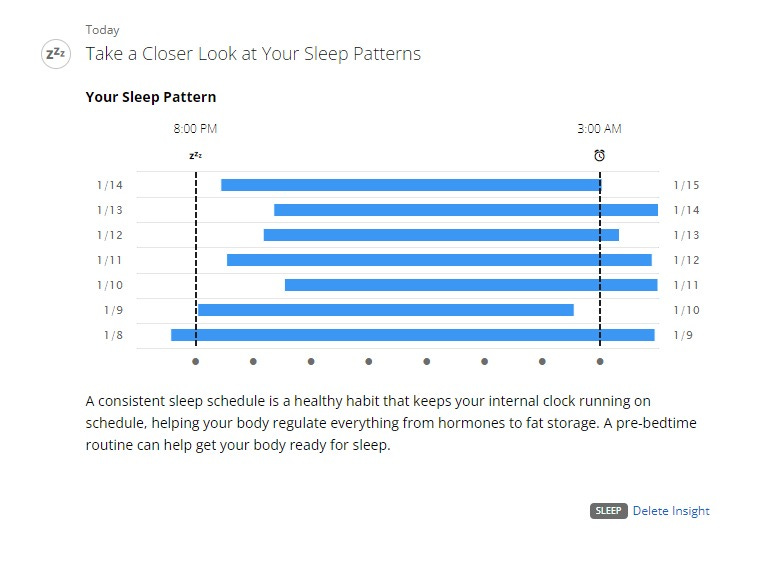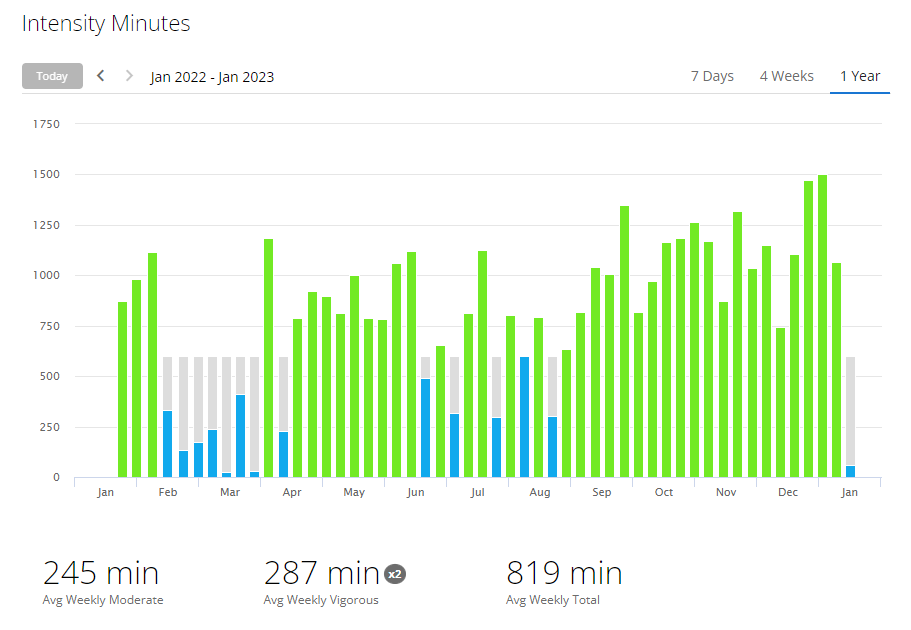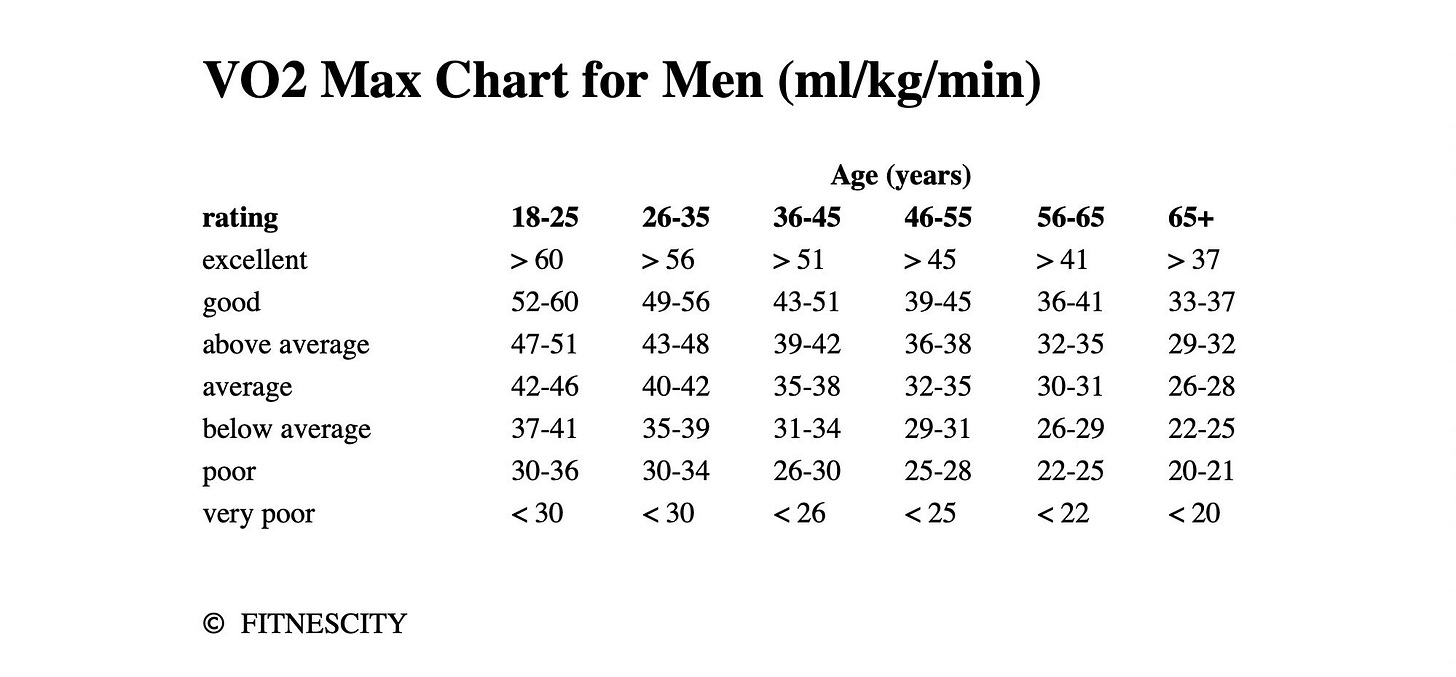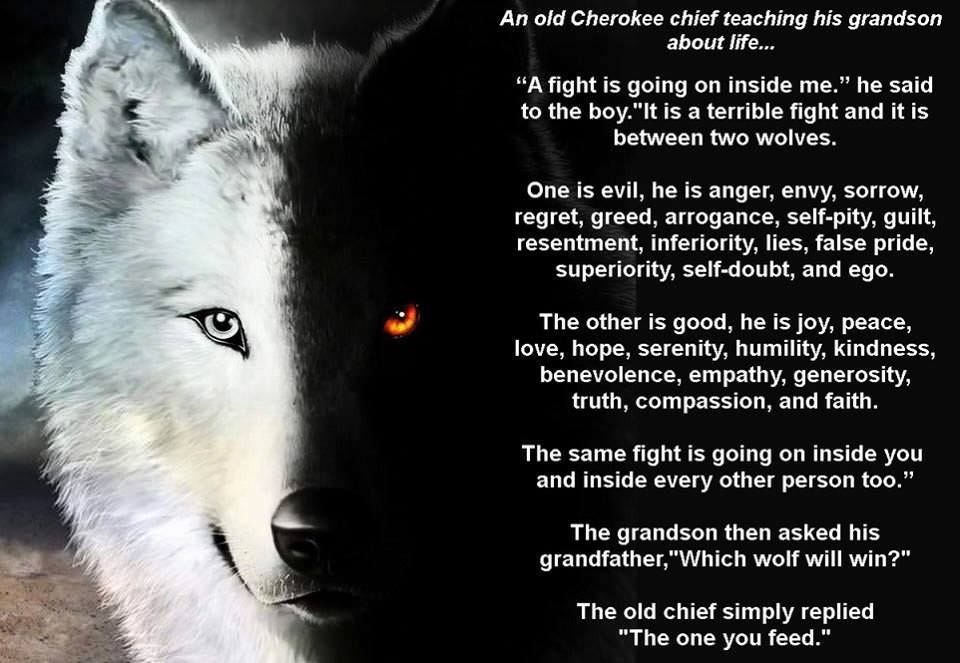The Bonus Physical Health Benefits of Sobriety
39 Weeks of Sobriety- 9 whole months. I speak a lot about the emotional aspects of sobriety but barely about the physical health benefits. I dove into the metrics and the results are insane!
Sobriety
Today I have been sober for NINE FUCKING MONTHS. Alright, settle down, idiot. 39 weeks. 273 days. I am closing in on that 300-day mark!
I’ve said it before, but I find these milestones funny. When the goal is to be sober for just today and also be sober forever, it’s odd that we celebrate these milestones. It almost seems like nine months is more significant than ten because it’s three-quarters of the year. It just divides into little blocks so neatly. 10 months is five-sixths of the year, which divides nicely but fuck that; it’s a little complex for our brains and doesn’t roll off the tongue, so fuck that. Fuck 10 months.
I’m feeling strong in terms of my sobriety. Nothing much has changed. So this week, I wanted to do something different.
I’ve spoken at length about the challenges and benefits of sobriety on my mental health but haven’t touched much on the physical benefits. I took a bit of a deep dive into the metrics provided by my Garmin pre and post-sobriety. Some of what I found was pretty crazy, so I wanted to share that with you all.
For a bit of reference, I got sober on April 18th, 2022. All metrics were recorded by the same device, a Garmin Fenix 6 watch.
Let’s fuckin’ do it.
The Bonus Physical Health Benefits of Sobriety
Getting sober is going to be good for you physically. No shit, Sam. People will say, “oh, you’re just replacing one habit with another.” Again, no shit. Of course, that’s what I am doing. When you go from spending 20+ hours a week drinking and doing drugs, you have a whole lot of space you need to fill to avoid thinking about drinking and doing drugs. Our days are filled with small habits. If replacing a couple of really fuckin’ bad habits with a few positive and healthy ones is bad, fuckin’ shoot me. Anyway, let’s get cracking.
Sleep
Having ADHD, I’ve always struggled with sleep. It was the getting to sleep part, not the staying asleep part. Days weren’t long enough for me. By the time I would get to sleep often, I’d already been awake for 18-20 hours. That only leaves 6-4 hours to sleep before going again the next day. Diagnosis and medication helped me regulate my routine somewhat, but nothing has helped me with my sleep more than sobriety.
The wild thing about this graphic is the change in consistency. My substance abuse was at its worst in March and into April. Where I was up over nine hours a night when I had COVID. As I recovered from COVID, I plummeted to under six hours a night. Even though I’m still not getting as much sleep as I would like, I think it’s pretty incredible how the chart almost looks like two separate charts on either side of my sobriety. According to the below tweet from Dr Andrew Huberman, Sleep consistency is as important as sleep duration, something I’ve focused intensely on since I’ve been sober.
Looking at my sleep over the last four weeks, I am averaging more sleep total and more time in all vital sleep zones, except for the light, which is a good thing. It means I’m getting deeper and REM sleep in exchange for light sleep. The recommended split for light/deep/REM is 50/25/25. I’m not there yet and may struggle to get there given my ADHD and medication, but I’m getting closer all the time, and that’s a fuckin’ win!
The sleep score graphics are crazy too. Even though I slept for nine hours a night in March, my sleep score was poor because I was sick with COVID, and then I was drinking and using drugs a lot. Again, you can see almost definitively the very moment I got sober. This has been a direct result of sleep consistency. I prioritised getting up and going down around the same time each day.
Again my sleep score is, on average, much better over the last four weeks than it has been in the previous 12 months, which is split into three months of using substances and nine months of sobriety, so as I keep going, the 12-month averages will improve. The only blip in this one was new years ever. Traditionally, I wouldn’t sleep at all on new years eve. This year I was asleep by 9 pm but then awake again at midnight to take my son to the hospital. He had a bug and turned his face hole into a vomit sprinkler.
Sleep is so underrated in terms of our health. Sleeping when you are drunk has been proven to be less effective than sleeping when sober. You may feel like you’re having a ripper sleep, but the quality is not as good. It influences so much. Our mood, our energy levels, our weight. Everything. I feel stupid for not prioritising it sooner in life. I’m grateful to have finally learned this lesson, the hard way or otherwise. I put so much of how I’m feeling down to getting better sleep, and I think everyone should look closely at their sleep hygiene. Become mindful of it and see if you can improve it. You’ll be glad you did.
Resting Heart Rate
Resting heart rate is more important to me than most people. A good indicator of overall fitness and health, but for me, it means more than that. I have a family history of high blood pressure. An elevated heart rate is associated with high blood pressure. It doesn’t stop there, though. I take a stimulant medication for ADHD. If I get high blood pressure, I will be taken off the medication immediately, as combining the two would pose too many significant health risks. The problem is that my medication regulates dopamine and serotonin levels, among others.
Because I have been on my medication for so long, there is a risk that if I were to stop taking it, my brain would no longer be able to regulate those levels on its own. I’d be at risk of falling into a depression for up to two years while my brain sorts its shit out. Our brains are highly efficient. Suppose we take something from an external source and use it to do a job that our body usually does. In that case, our bodies will stop doing it while ever the external source is doing it for us, like how the bodies of people who use steroids stop generating their testosterone. It’s like rocking up to a job to find some other prick who is already there doing it. You grab your esky, tuck your paper under your arm and piss off home.
So yeah, it’s best to keep my resting heart down as low as possible. After all, I’ve put myself through, a two-year depressive slump sounds about as appealing as a shit sandwich.
This one isn’t as drastic, but you can still see an improvement in consistency on either side of my sobriety in April. Early on, I had a heavy focus on weights. I was a bit sick of running after COVID etc. I tried to get back into my running around august but had a persistent, annoying back injury that could only be fixed with lots of stretching over some time. I finally got that sorted around October and eventually started running again. Nothing crazy, just a little bit. I dropped some weight, and my resting HR came down slightly with it.
I’ve been hovering around the 42-43 mark for six weeks. Much lower than the 12-month average of 49. So again, I headed in the right direction. I’d love to get off the stimulant medication to see just how low I could get it, but for the reason mentioned above,s I’m not sure it’s a good idea. They say anything below 60 is good, so I shan’t complain.
Stress
Stress… fucking sucks. It’s the worst. It often turns into anxiety, which turns into depression. Getting a handle on your stress could save you from things you didn’t even imagine you might need saving from. Stress is fucking bad for you physically too. It smashes your central nervous system.
I have no idea how Garmin measures stress, but I assume it’s some algorithm involving spikes in heart rate throughout the day, resting heart rate and the intentional stress we put ourselves under through exercise etc.
You can see my stress levels starting to climb in March. This was around when we were deciding whether or not to move to the coast, buy another house, rent our other house out etc. A stressful period. In hindsight, it’s probably this tiny little spike in March that led me to my meltdown in April. You can see the first couple of weeks of sobriety were a bit stressful, as expected, but I started a steady and consistent downward trend once I went through them. In August, we moved house, had our first baby, and I started a new job within four weeks, but my stress still didn’t spike! That is sobriety!
Average stress levels over the last four weeks are lower. What’s pleasing is that the lowest average in the previous four weeks is significantly lower than my 12-month average lowest.
Some might say that’s due to being on Christmas holidays. But my lowest stress levels were just the other day. We run an Airbnb downstairs which has been fully booked for December and January, every second day, I’ve been down there changing sheets and the like, a real domestic goddess I am.
I also have a five-month-old. Being at home can be more stressful than being at work sometimes!
Increased Activity
When you spend 20+ hours a week drinking, then probably another 10 hours a week laying around like a piece of shit because you’re too hungover to do anything other than eat icy poles and drink blue Powerade, getting sober is going to provide you with a whole lot more time!
I needed to fill this time with positive things. Initially, I had to get the old house up and ready to be rented out, do yard work and the like. Then came my son, who has been a saviour of a different kind.
But I still had gaps to fill and needed to fill them with something positive. I’ve been training on and off for years and reasonably consistently for the last seven years since being diagnosed and medicated for ADHD.
I did sweet fuck all in January, was slack in February; then COVID pulled me up in March. I got a bit excited when I first got sober in April and carried it through May and half of June. The other half of June, July and August were inconsistent because of the move and the baby. But once I settled down here, my chart looks like Steve Smith’s test batting record from 2016 to 2019. I’ll take “Best Since Bradman” any day.
All these charts read similarly. And whilst I agree that sobriety didn’t get me out of bed and drive me to the gym, it put me in a position I could capitalise on. My motivation and ability to get to the gym or head out for a run increased drastically from when I got sober. Initially, I was a little manic and had to stay busy, but once that passed, it was because I felt good; I was motivated and wanted to do it.
I set all of my strength PBs whilst sober and plan to run a few PBS in the coming months. Work in progress. Watch this space, yada yada.
Being active is good for you. It makes you feel good, extends your life, and makes your day-to-day life easier and more enjoyable. Go and do some shit.
V02 Max
V02 Max measures the amount of oxygen your body uses while exercising as hard as it can. The lower the So I don’t know how the fuck a wristwatch measures that. Mine copped a flogging when I got COVID; after that, I got stuck into the gym and stopped running, which helped get it back up there. So hopefully, as I train for Canberra Marathon, I can jump from that good to excellent range. I’m also 34, meaning I’m basically 36, so I think I’m doing alright.
Weight Loss
I don’t know what I weighed in April. I had some other stuff going on back then, and in the mental state I was in at the time, I’m not sure I gave a fuck. I’m not too fond of scale weight as a metric. But it’s objective, and people seem to like it, so here goes.
I was 98kg in September when I started running properly again. Just by tracking my food with The Alfred App to ensure I was in a slight calorie deficit each day, then upping my running slightly, I lost around a kilo a week for nine to ten weeks. I now hover somewhere around 89kgs, and I feel good.
As I said, I’m not too fond of scale weight. I think it’s terrible for people to go solely off scale weight as a health indicator. It can be dangerous when people become obsessed with it, especially in the modern world, where we can see improvements in many other performance-based metrics.
I wouldn't feel much better if I set my heart on getting from 89kg to 88kg. The difference it would make would be so minuscule that I wouldn’t even notice it. Last year I got down to the low 80s when I ran too much and did not eat enough. I felt and looked like shit. I’m not saying don’t use it, but give it as much attention as all the other health markers I’ve spoken about above. Don’t fall into the trap of obsessing over scale weight.
Unless you’re a jockey or fighter making weight, the number on the scale doesn’t fucking matter. If you want to lose weight, do it to be healthier, live longer, and feel better.
Sobriety didn’t lose any weight for me. Not drinking 6,000+ calories a week in beer probably helped a bit. The habits I formed in place of my drinking and drug use put me into a position to finally strike a good balance between the gym, running and eating correctly, instead of obsessing with running, then obsessing with weights, and binge eating shit for extended periods then getting the shits with myself and over training while starving myself.
I put that progress down to the calmer, more sensible, less erratic approach to life I have gained through my sobriety.
Fitness Age
Look, this is another one I have yet to learn how they gather the data. Again though, I’ve been using the same device the entire time, and the number is coming down. I’m 34, and my watch thinks I’m 29.5. It’s some generic algorithm based on where the metrics sit on the average person at whatever age.
What this number tells me is not so much that I am 29.5 years old physically, but I am above average in the key metrics against people of my age, and that’s nice to me. It tells me that the effort I am putting in is working overall. It’s an excellent all-around indicator of how I am going.
Anyway, I’ll see you all on my 28th birthday.
Summary
When someone has an unhealthy habit, and they eliminate that habit and replace it with healthier options, they will get healthier. I wanted to share all this because, whilst I understood, I would naturally get fitter; the charts, in particular, were eye-opening. I didn’t realise how badly my lifestyle affected my crucial health markers. Hopefully, this helps open the eyes of others and encourages them to start making healthier lifestyle decisions.
I’m not anti-drinking. I fucking love drinking. I’m just awful at it. I’d never push my narrative onto someone else. But if you want to feel a bit better, maybe you can take something away from my journey so far and apply something I’ve spoken about to your life and see some improvements.
I don’t know; I want people to feel good. I want people to feel the improvements I’ve been lucky enough to feel.
I don’t regret any of my drinking or drug use because without it, maybe I wouldn’t have been on this little journey of self-discovery, and I wouldn’t be in such a good place right now. I can’t change it anyway, so it doesn’t matter.
I have to keep chipping away and letting life get better by doing what I’m doing. Keep feeding the right wolf, one day at a time.
Cheers Wankers.
X.
Click here to read my other work. Follow me on Instagram and Twitter @sbrngthghts.
.
If anyone is struggling in any way, make someone aware of it. Speak to a friend, family, loved one, stranger, postman, uber eats driver, or me; talk to someone.
Lifeline Ph: 13 11 14
Alcoholics Anonymous Ph: 1300 222 222
NSW Mental Health Line Ph: 1800 011 511
Suicide Call Back Service Ph: 1300 659 467
Mensline Australia Ph: 1300 78 99 78
Kids Helpline Ph: 1800 55 1800

























“I’m not anti-drinking. I fucking love drinking. I’m just awful at it.” This made me properly laugh!
Amazing that you have all these stats available to track your progress.
I like the garmin stress level reading. I came from Fitbit and my family did a weekly step challenge. I'd lose every week, despite being on my feet working hard all day. Stress level/heart rate I think is a more accurate measurement for me. I might not get 10,000 steps every day, but my stress level is consistently above 40. I guess it validates how hard I'm working. I did find it interesting to follow it along while I had covid too. It showed how hard my body was working, even though I moved between my bed and the couch my stress level was as high as what it would be if I was working, some days it was actually higher and that really confirms the whole don't put any unnecessary stress on your body when you're sick. People often brag about pushing themselves to exercise through illness, but it's really nothing to brag about. Help your body recover and rid itself of the virus by resting.